Intro
Improve sleep with 5 guided meditations, featuring relaxation techniques, mindfulness, and calming exercises to reduce insomnia and stress, promoting deep sleep and overall well-being.
Getting a good night's sleep is essential for both physical and mental health. During sleep, our bodies repair and regenerate tissues, build bone and muscle, and strengthen our immune systems. However, many of us struggle with falling asleep or staying asleep, which can lead to a range of negative consequences, including fatigue, decreased productivity, and increased risk of chronic diseases. One effective way to improve sleep quality is through meditation. Meditation can help calm the mind, relax the body, and prepare us for a restful night's sleep. In this article, we will explore five meditations for sleep that can help you drift off to dreamland and wake up feeling refreshed and revitalized.
Meditation has been practiced for thousands of years, originating in ancient Eastern cultures as a way to cultivate mindfulness, awareness, and inner peace. Today, meditation is recognized as a valuable tool for reducing stress, anxiety, and depression, as well as improving sleep quality. By incorporating meditation into your bedtime routine, you can signal to your brain that it's time to wind down and prepare for sleep. This can be especially helpful for people who struggle with racing thoughts, anxiety, or restlessness at night.
The benefits of meditation for sleep are numerous. Regular meditation practice has been shown to decrease symptoms of insomnia, improve sleep duration and quality, and reduce daytime fatigue. Meditation can also help regulate the body's circadian rhythms, which can become disrupted due to factors such as travel, work schedules, or exposure to screens before bed. By practicing meditation regularly, you can develop healthier sleep habits and improve your overall well-being.
Introduction to Meditation for Sleep

To get started with meditation for sleep, it's essential to create a conducive sleep environment. This includes keeping your bedroom cool, dark, and quiet, and investing in a comfortable mattress and pillows. You should also establish a consistent sleep schedule, avoiding caffeine, nicotine, and electronic screens before bedtime. Once you've set the stage for sleep, you can begin exploring different meditation techniques to help you relax and unwind.
1. Body Scan Meditation
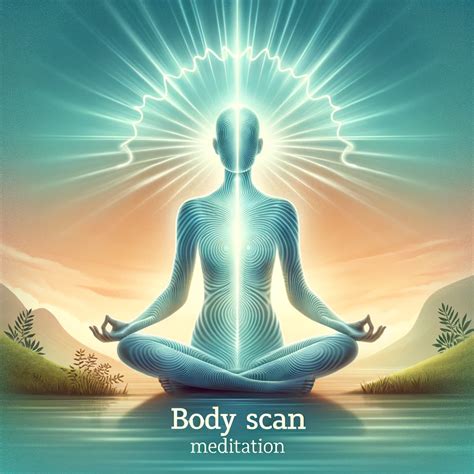
One of the most effective meditations for sleep is the body scan meditation. This technique involves lying down or sitting comfortably, closing your eyes, and bringing your attention to different parts of your body. Start at your toes and work your way up to the top of your head, noticing any areas of tension or relaxation. As you focus on each body part, release any tension or discomfort, allowing yourself to sink deeper into relaxation. This meditation can help you become more aware of your physical body and release any residual stress or anxiety that may be keeping you awake.
How to Practice Body Scan Meditation
To practice body scan meditation, follow these steps: * Find a quiet and comfortable place to lie down or sit * Close your eyes and take a few deep breaths * Bring your attention to your toes, noticing any sensations or feelings * Slowly work your way up your body, focusing on each part in turn * Release any tension or discomfort as you exhale * Continue scanning your body until you reach the top of your head2. Loving-Kindness Meditation
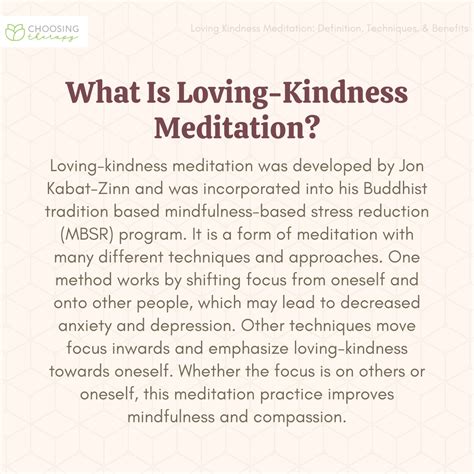
Another powerful meditation for sleep is loving-kindness meditation. This technique involves cultivating feelings of love, compassion, and kindness towards yourself and others. Start by repeating phrases such as "May I be happy, may I be healthy, may I be at peace" to yourself, and then extend these wishes to others, including friends, family, and even those you may have difficulty with. This meditation can help you develop a sense of warmth and connection, which can be especially helpful for people who struggle with anxiety or feelings of isolation at night.
Benefits of Loving-Kindness Meditation
The benefits of loving-kindness meditation include: * Increased feelings of love and compassion * Reduced anxiety and stress * Improved sleep quality * Increased sense of connection and community3. Guided Meditation
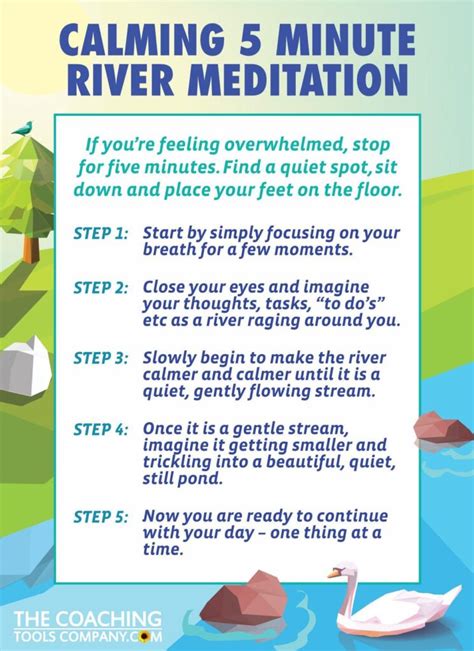
Guided meditation is another effective technique for promoting relaxation and sleep. This involves listening to a guided audio recording that leads you through a meditation practice, often using visualization, imagery, or soothing music to create a peaceful atmosphere. You can find guided meditations online or through mobile apps, and they can be tailored to specific themes, such as sleep, stress, or anxiety. Guided meditation can be especially helpful for people who are new to meditation or struggle to quiet their minds.
How to Use Guided Meditation
To use guided meditation, follow these steps: * Find a quiet and comfortable place to sit or lie down * Choose a guided meditation recording that suits your needs * Close your eyes and listen to the recording, allowing yourself to follow the guide's instructions * Focus on your breath and let go of any distracting thoughts or feelings * Continue listening to the recording until you feel relaxed and ready for sleep4. Mindfulness Meditation
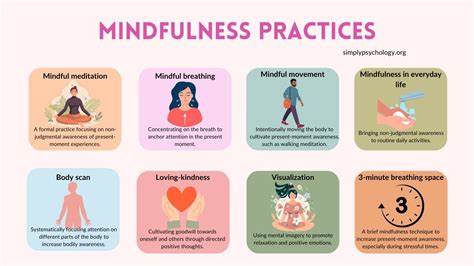
Mindfulness meditation is a powerful technique for promoting relaxation and reducing stress. This involves paying attention to the present moment, often by focusing on your breath, body sensations, or sensory experiences. Mindfulness meditation can help you develop greater awareness and acceptance of your thoughts and feelings, allowing you to let go of worries and concerns that may be keeping you awake. By cultivating mindfulness, you can improve your sleep quality and overall well-being.
Benefits of Mindfulness Meditation
The benefits of mindfulness meditation include: * Increased awareness and acceptance of thoughts and feelings * Reduced stress and anxiety * Improved sleep quality * Increased sense of calm and relaxation5. Transcendental Meditation
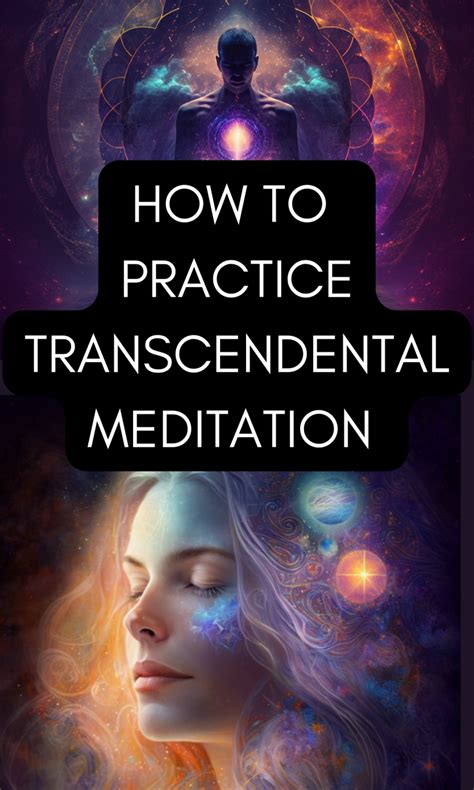
Transcendental meditation is a specific technique that involves the use of a mantra to quiet the mind and access a deeper state of consciousness. This meditation practice has been shown to reduce stress, anxiety, and depression, as well as improve sleep quality and cognitive function. Transcendental meditation can be practiced for 15-20 minutes, twice a day, and can be especially helpful for people who struggle with insomnia or other sleep disorders.
How to Practice Transcendental Meditation
To practice transcendental meditation, follow these steps: * Find a quiet and comfortable place to sit * Choose a mantra that is personal and meaningful to you * Close your eyes and repeat the mantra to yourself, allowing yourself to settle into a deeper state of relaxation * Continue meditating for 15-20 minutes, twice a day * Notice any changes in your thoughts, feelings, and physical sensationsWhat is the best meditation for sleep?
+The best meditation for sleep is one that helps you relax and calm your mind. Body scan meditation, loving-kindness meditation, and guided meditation are all effective techniques for promoting relaxation and sleep.
How long should I meditate before bed?
+The length of time you should meditate before bed depends on your individual needs and preferences. Aim for 10-20 minutes of meditation, and adjust as needed to help you feel relaxed and prepared for sleep.
Can meditation really help with sleep?
+Yes, meditation can really help with sleep. Regular meditation practice has been shown to reduce symptoms of insomnia, improve sleep duration and quality, and reduce daytime fatigue. By incorporating meditation into your bedtime routine, you can signal to your brain that it's time to wind down and prepare for sleep.
In conclusion, meditation is a powerful tool for improving sleep quality and overall well-being. By incorporating one or more of these five meditations into your bedtime routine, you can cultivate relaxation, reduce stress and anxiety, and prepare your body and mind for a restful night's sleep. Remember to create a conducive sleep environment, establish a consistent sleep schedule, and avoid screens and stimulating activities before bedtime. With regular practice and patience, you can develop healthier sleep habits and wake up feeling refreshed, revitalized, and ready to take on the day. We invite you to share your experiences with meditation and sleep in the comments below, and to explore the many resources available online and in your community to support your meditation practice.
